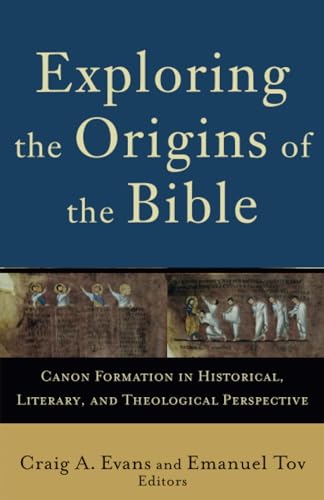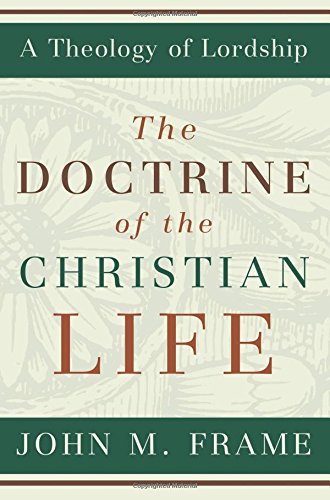The Anchor Yale Bible
Written by William Foxwell Albright, David Noel Freedman, and John J. Collins. eds. Reviewed By Andrew David NaselliThe Anchor Yale Bible (henceforth AYB) is a massive and mixed commentary series covering most of the OT (50 vols.), NT (26 vols.), and Apocrypha (8 vols.). The commentaries include introductions, original translations, historical and literary criticism, outlines, verse-by-verse comments, maps and illustrations, and bibliographies. The AYB is international and ecumenical, authored by Protestant, Catholic, and Jewish scholars. Its current general editor, John J. Collins, explains, “The project is not sponsored by any ecclesiastical organization and is not intended to reflect any particular theological doctrine.… It aims to present the best contemporary scholarship in a way that is accessible not only to scholars but also to the educated nonspecialist.” Further, it gleans “insights from modern methods, such as sociological and literary criticism.”
These guidelines explain why many contributors employ critical tools in a way that evangelicals do not and even deny Bible doctrines that are essential to the Christian faith. So in this sense, the AYB is a mixed series that is not nearly as trustworthy as series such as the Pillar NT Commentary, Baker Exegetical Commentary on the NT, and New International Commentary on the OT and NT. Further, the AYB volumes are often not “accessible … to the educated nonspecialist” but are of use to scholars and virtually no one else. Some AYB volumes offer disappointingly sparse exegesis (e.g., Louis F. Hartman and Alexander A. Di Lella on Daniel, W. F. Albright and C. S. Mann on Matthew), reject the unity of the book on which they comment (e.g., Ephraim A. Speiser on Genesis, William H. C. Propp’s two volumes on Exodus, Joseph Blenkinsopp’s three volumes on Isaiah; Josephine Massynberde Ford on Revelation), or are beyond methodological controls (e.g., Mitchell Dahood’s three volumes on Psalms, Jerome H. Neyrey on 2 Peter and Jude).
On the other hand, some of the AYB volumes make outstanding scholarly contributions in linguistics and historical-grammatical exegesis (e.g., Jacob Milgrom’s three volumes on Leviticus, Marvin H. Pope on Song of Songs, Jack R. Lundbom’s three volumes on Jeremiah, Paul R. Raabe on Obadiah, Francis I. Andersen and David Noel Freedman on Micah, Raymond E. Brown’s two volumes on John, and Joseph A. Fitzmyer on Luke, Acts, Romans, 1 Corinthians, and Philemon). In general, the AYB’s strengths include scholarly exegesis and bibliographies, and its weaknesses include its liberal use of historical and literary criticism and a lack of biblical- and systematic-theological synthesis. Although the AYB is not the first place evangelical pastors should turn for sermon preparation, it is a useful resource for biblical scholars.
Defending the scholarly value of the AYB is not difficult, but the question in the minds of most readers is probably “But is it worth $3,000?” That is an average of $35.67 for each volume. It would cost about $3,350 to buy each of the eighty-four print volumes on Amazon.com (computed on May 28, 2009), and Yale University Press offers them in bundles for $2,660 ($1,600 for the OT, $830 for the NT, and $230 for the Apocrypha). Nevertheless, I am persuaded that owning the AYB in the Libronix Digital Library System (owned by Logos Research Systems, Inc., the makers of Logos Bible Software) is far superior to owning print copies and that the price is reasonable. I have made a case elsewhere for using electronic commentaries in Libronix: “Review of Scholar’s Library: Gold, Version 3, by Logos Bible Software,” Detroit Baptist Seminary Journal 11 (2006): 151–60; and “PNTC, BECNT, and NIGTC: Three New Testament Commentary Series Available Electronically in Libronix,” Detroit Baptist Seminary Journal 12 (2007): 81–99. In short, using electronic commentaries in Libronix is more efficient than using print commentaries for two primary reasons: searchability and versatility. (1) Commentaries in Libronix have multiple searching capabilities that far exceed print commentaries in both speed and thoroughness, and (2) commentaries in Libronix are superior to print commentaries with reference to accessibility, readability, marking, copying and pasting, saving, and linking. Yale University Press and Logos Bible Software have done Bible students a great service by making the AYB available electronically.
Andrew David Naselli
Andy Naselli is assistant professor of New Testament and Biblical Theology at Bethlehem College and Seminary in Minneapolis and administrator of Themelios.
Other Articles in this Issue
We begin with a question of translation. Many translations place a period after the word “conviction” in 1 Thess 1:5: “in power and in the Holy Spirit and with full conviction...
The Inexhaustible Fountain of All Good Things: Union with Christ in Calvin on Ephesians
by Lee GatissJuly 10, 2009 was the 500th birthday of the acclaimed French Reformer John Calvin...
The name of Martin Luther is perpetually linked to the doctrine of justification by faith alone...
Of the many questions currently surrounding the discussion about justification, the relationship between justification and spiritual fruit merits attention...
Every year a few students ask me my thoughts about whether they should pursue doctoral studies and I respond with what has come to be known as ‘The Speech...






